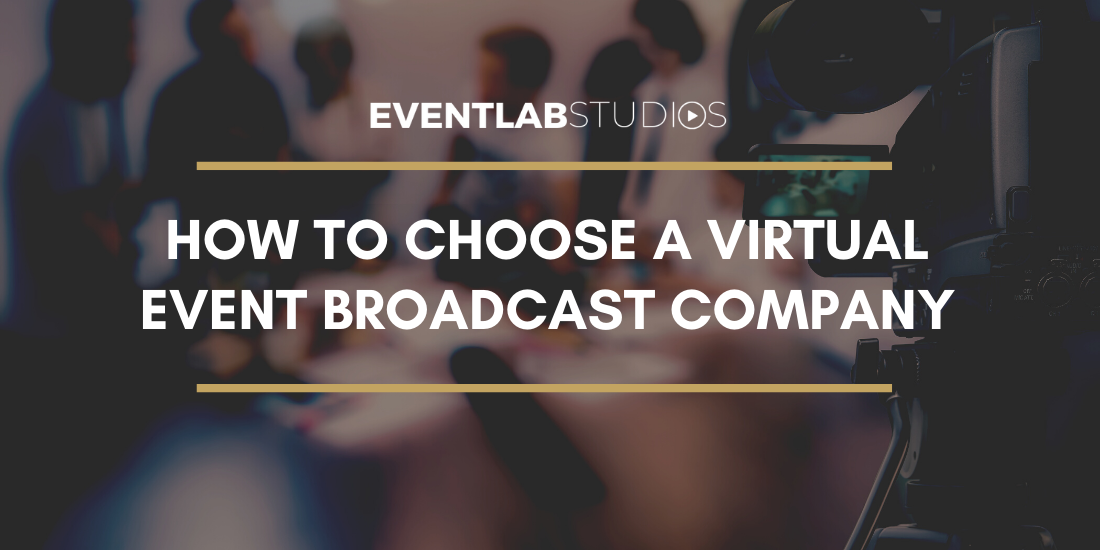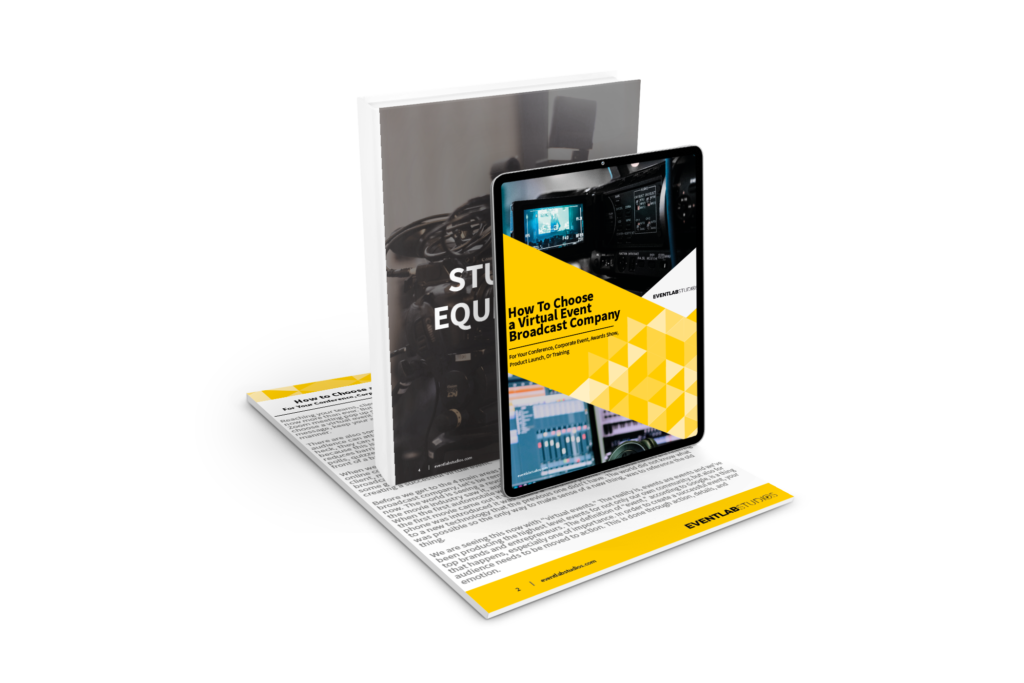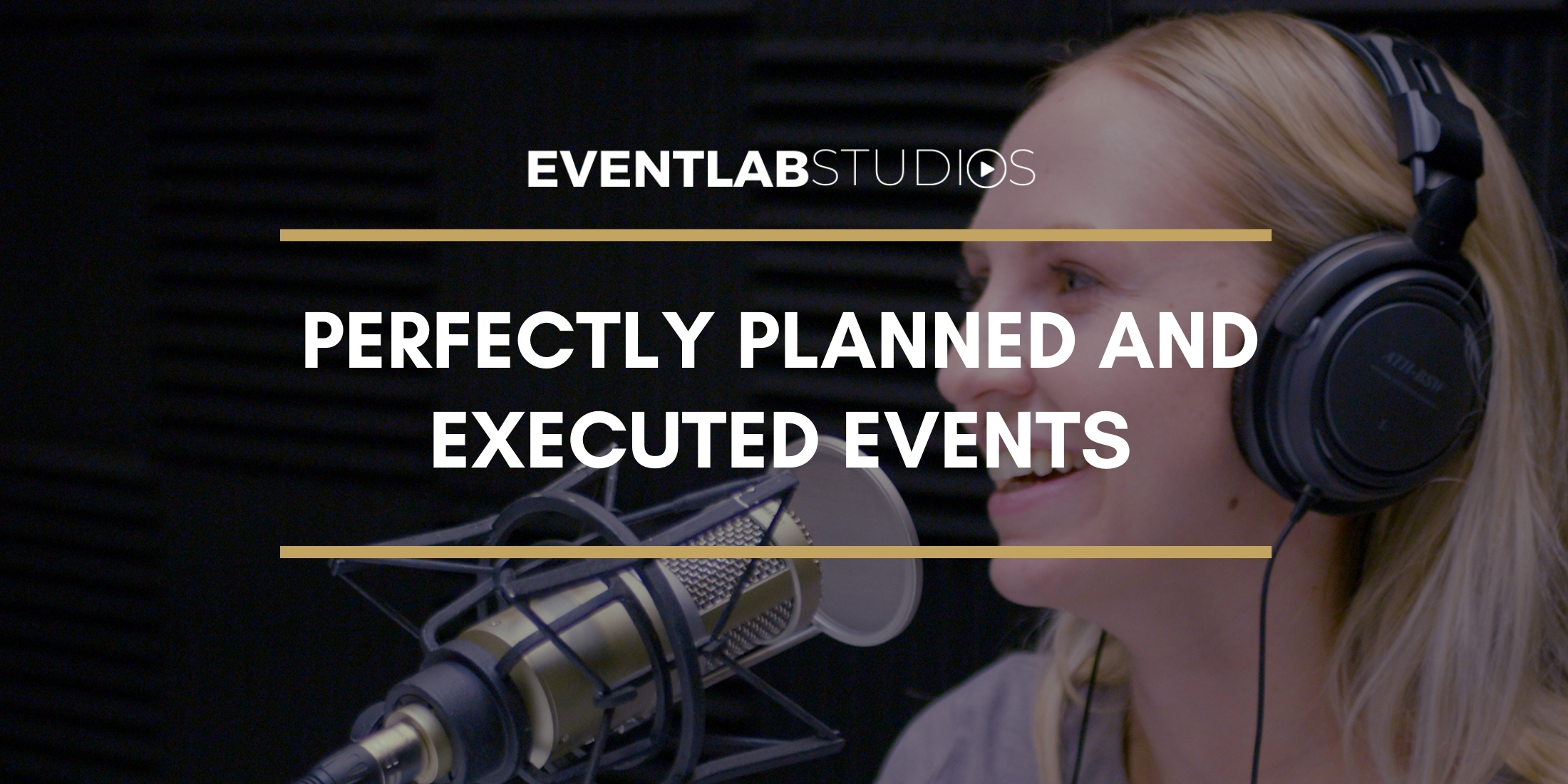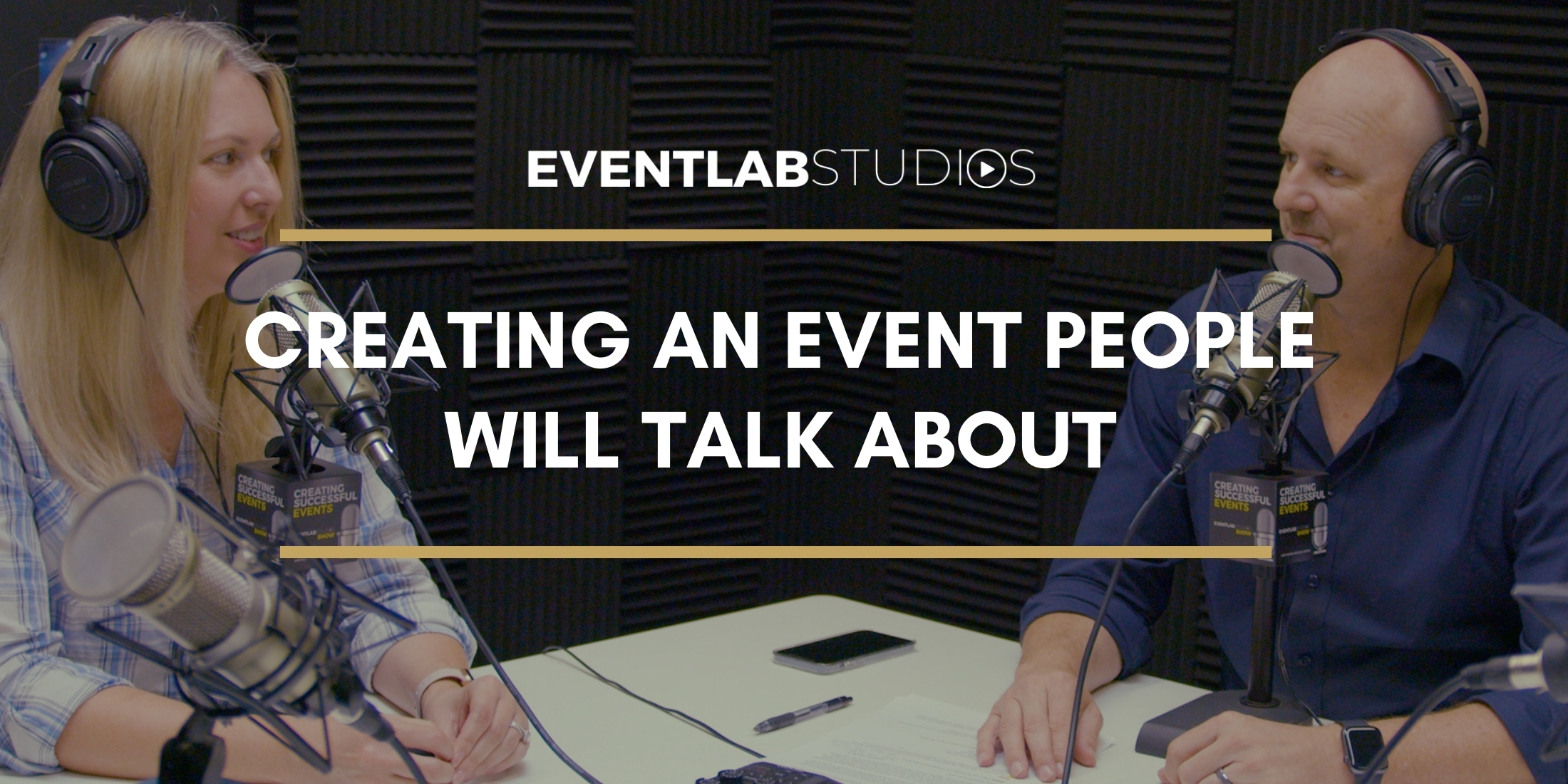
How To Choose A Virtual Event Broadcast Company
For Your Conference, Corporate Event, Awards Show, Product Launch, Or Training
Reaching your teams, clients, shareholders, audience, and customers is crucial right now more than ever. But no one, I mean no one, gets excited when they see another Zoom meeting pop up on their calendar. This is why it is so important to know how to choose a virtual event broadcast company that can elevate the delivery of your message, keep your audience engaged, and do all of this in a professional, polished manner.
There are also some amazing benefits of running a successful virtual event! Your entire audience can attend without incurring travel expenses, food and lodging costs, and heck, they can even attend in their pajamas if they’re working from home! Additionally, because this isn’t just another Zoom meeting and their faces won’t be on camera, this reduces barriers to engagement because attendees are more likely to participate in polls, quizzes, Q&A, and chat because they’re not having to walk up to a microphone in front of a ballroom filled with colleagues and other professionals.
When we produce an event, create a commercial, film an industry conference, film an online course, or perform live, it must lead to an action – that could be to get a new client, make a sale, engage a team, or to introduce a product. This is why your virtual broadcast company is your partner, not just a few people who are only there to throw some graphics onto the screen and call it a day. There is so much more involved with creating a successful virtual event.
Before we get to the 4 main areas to concentrate on when choosing a virtual broadcast company, let’s be reminded that we are in a state of transformation right now. The world is seeing a revolution, just like the automotive industry saw it, just like the movie industry saw it, and just like the telephone industry saw it. Think about it. When the first automobile was invented, it was called a “horseless carriage.” When the first movie came out it was called a “motion picture.” And when the first handheld phone was introduced it was called a “cordless phone.” All of these names are referring to a new technology that the previous one didn’t have. The world did not know what was possible so the only way to make sense of a new thing, was to reference the old thing.
We are seeing this now with “virtual events.” The reality is, events are events and we’ve been producing the highest level events for not only our own community, but also for top brands and entrepreneurs. The definition of “event,” according to Google, is a thing that happens, especially one of importance. In order to create a successful event, your audience needs to be moved to action. This is done through action, details, and emotion.
Look, “virtual events” have been happening for decades. Think about the Academy Awards, the Super Bowl, The Tonight Show, and any talk show or sporting event you see on a daily basis. These are all being broadcast to a worldwide audience through the use of technology. What happens at these events is the audience is treated to a little bit of suspense, a little bit of surprise, and a little bit of entertainment which results in a magical experience for the audience. Additionally, the sponsors are promoted to a much larger audience than would have been possible with a live, in-person event.
Zooms are predictable and audiences associate zoom experiences with company meetings. That’s not good for your event. You need to think about what your audience needs and enter the story in their mind in order to deliver and move them to action. Why are they attending your event? What problem do they hope to solve? What will make them achieve a bigger and better future? Make your content all about them, all about what they want, and how to get it.
Many event producers will focus on adding all types of features with the intent to compel the audience to think of their event like an in-person event. A virtual event cannot be replicated online and many of these shiny new tech tools actually divert your attendee’s attention away from your own content and it even has the possibility to decrease the production level of your entire event. Don’t fall into this trap of competing on features. Features don’t sell, information doesn’t sell. Stories do.
Underpromise and overdeliver. That’s what we do and have been doing for years. Many of us grew up in a TV generation so the pre-production elements (commercials, sponsor clips, remote acceptance speeches in award shows) are already the norm. Make sure your content is of the highest quality and deliver on that. Let your virtual event broadcast company handle the rest.
There are 4 main areas to concentrate on when choosing a virtual event broadcast company: Studio & Equipment, Technology, People, and Experience. Let’s explain why these 4 areas are absolutely critical to a successful event. Below is a checklist of items to discuss with any potential company you are looking to partner with for any kind of event.
Studio & Equipment
- Does the company have a physical studio space? (Many audio/visual teams are project-based and travel to specific venues only).
- Is the company operating with equipment able to handle live broadcasting such as professional live switchers, multi-camera filming, audio mixers, HD streaming capture cards, professional lighting, flexible set designs, presenter monitors, and high quality microphones?
- Does the company have a backup (redundancy) plan for emergencies like loss of power or internet?
- Are they using professional SDI cameras for reliable streaming?
- Do they have the capability to produce, schedule, and direct any and all of your pre-recorded elements? Using pre-recorded presentations and content can greatly improve the quality of your event by reducing variables (speakers having crummy sound and lighting or using some ridiculous virtual background that randomly cuts off their hair or arms when they move around).
Technology
- Is the company using LiveU solo bonded technology for a reliable stream? This costs $475.00/ month internet connection with solo connect and 4 bonded cellular access points. It’s a good indicator this is a pro team.
- Does the company have the capacity to build virtual venues to market to your customers, distribute the stream, and communicate with your attendees? Most will just ask you where to stream to or where to send the RTMP signal. There are plenty of good A/V teams that understand the tech and livestream, but if they are not running their own events, they likely don’t understand the full purpose of the show. You need alignment with a team that has both technical, A/V, and event planning experience. Look deeply for this in their team.
- Does the company have the ability to provide access to any content that would have previously been printed for your attendees (pdf worksheets, programs, workbooks, etc.)?
- Do they have licensed engagement technology? Pro version could cost you $1,200. This is for audience polling, Q&A, quizzes, and chat.
- Do they have someone to moderate the engagement and/or train someone on your team to moderate audience questions and comments?
- Do they have someone who can handle the live switching between cameras and feeds with speed and expertise?
People
- Is their team on staff or are they contracted for specific events? This will be important when last minute things happen. And they will. You need a team that is committed to protecting your reputation and brand.
- Make sure they have technical directors, producers, graphic designers, audio engineers, and account managers as pre-production can be more than anticipated. You don’t want to feel overwhelmed prior to the event and this is where the partnership comes into play. The team should be making this a totally streamlined process for you.
- Do they have expertise in brand storytelling and do they understand the story you’re trying to tell?
- Can they create high-end quality on-screen graphics following your brand guidelines?
- Do they have the capability for end-to-end video production?
- Will they be rehearsing with each of your live speakers to ensure smooth transitions and check knowledge of where to look and how to speak on camera?
- Do they have someone who can manage multiple speakers coming into the broadcast, ensuring their lighting, audio, background, and framing looks good and is ready to cue them when they’re live?
- Do they have a person who will continually monitor the stream to ensure there is no disruption for your audience? Someone who is able to troubleshoot quickly and have backup streams ready to embed at a moment’s notice should that be necessary?
- Do they handle all of the scheduling, rehearsals, and run-of-show? They should.
- Do they provide clear guidelines and deadlines for on-screen assets and content?
- Do they have professional Emcees on the team to help maintain audience engagement and energy. Hosting a live event needs proper transitions and a pro emcee helps the host look sharp and entertain the audience at the same time.
- Do they work with preferred musicians? Music can really set the tone of your event and provides for entertaining transitions between sessions, speakers, and content.
- Can they provide a sense of hospitality and production assistants to be an extension of your brand while assisting any in-person guests and making sure they enjoy their experience?
Experience
- Do they have examples of prior virtual events? This is your biggest indicator of competence and to see if their style matches what you’re looking for and the feeling you want to convey to your audience. Make sure the videos and photos they’re showing you are of virtual events. Many A/V companies are transitioning into virtual and have only done in-person events, which are very different than going all virtual.
- Do they have credible testimonials from actual clients? Do the testimonials resonate with what you are looking for with your specific event?
- Is the company responsive and do they clearly communicate with you?

Grab a copy of our Free Guide: How to Choose a Virtual Event Broadcast Company



